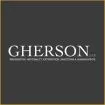- in European Union
- within Government and Public Sector topic(s)
- with readers working within the Construction & Engineering industries
In this blog, Gherson's criminal litigation, investigations and regulatory team explore what World Check is and how the information that World Check (and its competitors) holds and provides about you can have a profound (and potentially unknown) effect on both your reputation and your ability to conduct business with and through numerous key institutions in a globalised world.
The blog explains how it is, therefore, of vital importance to ensure that any information that these databases hold about you is correct and accurate; and details how you can find out whether this is the case, and if not, the steps you can take to rectify the situation.
What is World Check?
World Check or, to give the organisation its full name – Refinitiv World Check – is a database often utilised by those who conduct due diligence, third-party screenings or Know Your Client ("KYC") checks. Eliminating the technical jargon, the World Check database, and the databases of their competitors, are used by banks, law firms, insurance companies and a host of other businesses who are obliged to conduct checks on their clients. This necessitates collecting and regularly updating client personal information.
These databases are compiled from third-party sources of information and are comprised of individuals including those who are deemed to be high-risk from an anti-money laundering perspective, are classed as Politically Exposed Persons ("PEPs"), are designated on sanctions lists, or have encountered legal, regulatory or criminal difficulties in the past, and are thus exposed to enhanced due diligence and/or financial screening checks.
How do these databases affect me?
The companies maintaining these databases may seem like obscure organisations, though the impact they can have on the ability of an individual to operate freely and conduct business in a global world is profound. Seemingly trivial activities like opening a bank account, renting a flat, taking out a loan, engaging a lawyer or starting a business relationship expose individuals to a plethora of regulatory checks.
At this point, these databases become an invaluable collation of information that entities will rely upon to determine whether or not to do business with you. Therefore, there are understandably potentially huge negative implications for prospective clients if incorrect or inaccurate information is provided by these databases.
How do I know if I am on these databases?
In compliance with the Data Protection Act 2018 and other legal frameworks, World Check, for example, is obliged to inform individuals if they are listed on their database. However, this is not an automatic obligation – said individual must request this information, at which point World Check will comply. Access to your full World Check report, however, is not guaranteed.
How do I correct information about me on these databases?
These databases provide internal mechanisms for the rectification, amending or removal of information about you as the data subject. These processes are complex and require an understanding of the underpinning legal frameworks, as well as the extent to which these organisations can be compelled to correct their report.
The content of this article is intended to provide a general guide to the subject matter. Specialist advice should be sought about your specific circumstances.


